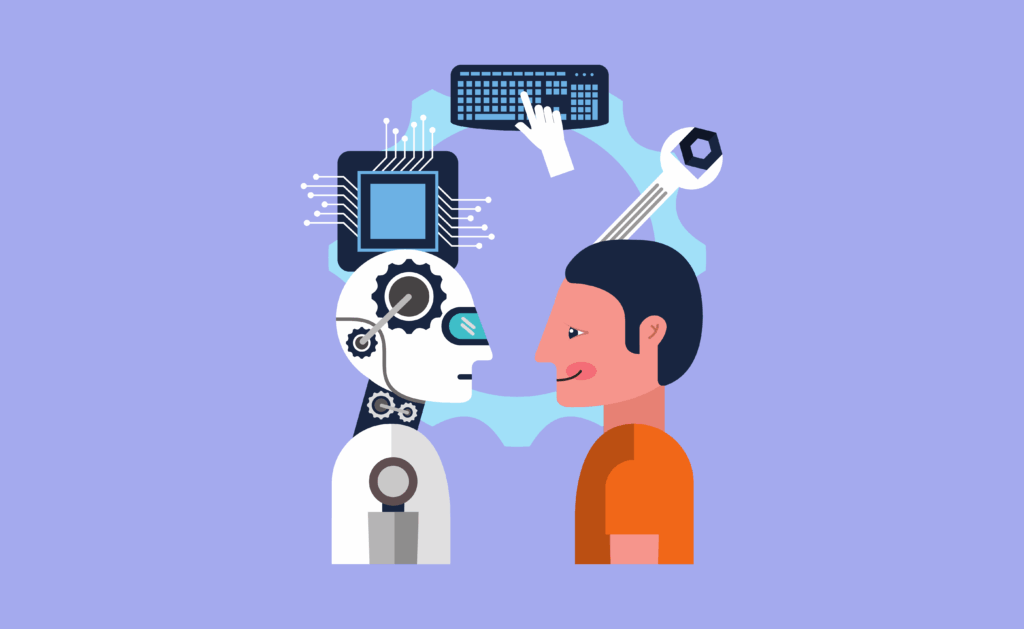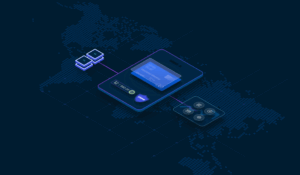Jobs safe from AI are becoming the most valuable asset in today’s rapidly evolving workforce, as artificial intelligence threatens to displace an estimated 300 million positions globally by 2030. While headlines scream about mass automation and robotic replacements, a powerful counter-narrative is emerging: certain careers remain not just resistant to AI disruption, but are actually becoming more valuable precisely because of their irreplaceable human qualities. From payment intelligence analysts navigating complex fraud patterns to surgeons making split-second life-or-death decisions, these professions demand skills that no algorithm can replicate: emotional intelligence, creative problem-solving, ethical judgment, and the ability to forge genuine human connections.
The intersection of artificial intelligence and employment has created unprecedented anxiety across industries. Approximately 41% of employers worldwide plan to reduce their workforce due to AI adoption over the next five years, and 30% of U.S. workers fear their jobs will vanish by 2025. Yet this technological revolution presents a paradox: while AI excels at processing data, recognizing patterns, and automating repetitive tasks, it fundamentally lacks the nuanced capabilities that define complex human work. Understanding which careers leverage these uniquely human strengths isn’t just academic curiosity; it’s essential intelligence for anyone planning their professional future.
Why Some Jobs Remain Untouchable by Artificial Intelligence
The careers most resistant to AI automation share several defining characteristics that expose the current limitations of machine learning and robotic systems. These aren’t temporary gaps that future technology will inevitably close; they represent fundamental differences between artificial and human intelligence.
Emotional Intelligence and Empathy: AI can simulate conversational responses and even detect emotional patterns in data, but it cannot genuinely feel, understand, or respond to human emotions with authentic empathy. This creates an insurmountable barrier in professions where emotional connection drives outcomes. Research demonstrates that 76% higher engagement occurs among employees with empathetic leaders, and 95% of employees report a greater likelihood of staying with organizations that demonstrate genuine empathy. These aren’t metrics AI can fake its way through.
Complex Physical Dexterity in Unpredictable Environments: While robots excel in controlled factory settings with repetitive motions, they struggle catastrophically when faced with the chaotic variability of real-world physical work. Programming a robot to navigate a partially-built construction site, assess water damage in a century-old home, or perform delicate surgery on unique human anatomy remains beyond current AI capabilities. The environmental variability alone breaks most AI systems.
Ethical Judgment and Contextual Decision-Making: AI systems operate on algorithms and training data, but they cannot weigh moral implications, understand cultural nuances, or make judgment calls that balance competing values. When a situation requires consideration of ethical dilemmas, long-term human consequences, or decisions that transcend pure logic, human judgment becomes irreplaceable.
Creativity and Original Innovation: AI can remix existing patterns and generate variations on known themes, but genuine creativity, the ability to imagine what doesn’t yet exist and bring entirely novel concepts into reality, remains distinctly human. True innovation stems from connecting disparate ideas in unexpected ways, drawing from lived experience, cultural understanding, and intuitive leaps that transcend pattern recognition.
Healthcare Professionals: Where Human Touch Saves Lives
Healthcare consistently ranks among the most AI-resistant sectors, and for compelling reasons that extend far beyond technological limitations. OpenAI CEO Sam Altman has publicly stated that roles like nursing are unlikely to face AI disruption, even as other white-collar professions face existential threats.
Surgeons and Physicians: Medical practice demands real-time decision-making in conditions of uncertainty, where each patient presents unique anatomical variations, complications, and circumstances. While AI can assist with diagnostics by identifying patterns in medical imaging, the actual practice of medicine requires physical examination skills, intuitive assessment, and the ability to communicate complex medical information with compassion. Healthcare roles face only 15-20% automation risk according to recent assessments.
Imagine undergoing major surgery where the last thing you see before anesthesia takes effect is a doctor pulling up ChatGPT for step-by-step instructions. The absurdity of this scenario illustrates why physicians remain irreplaceable; they must integrate vast medical knowledge with hands-on expertise, ethical considerations, and immediate responsiveness to complications that AI simply cannot navigate.
Nurses and Patient Care Specialists: Nursing combines technical medical skills with profound emotional labor. Nurses must read non-verbal cues, provide comfort during vulnerable moments, advocate for patient needs, and make rapid assessments based on subtle changes in patient condition. The NHS aims to hire over 50,000 nurses by 2025, reflecting growing demand even as AI proliferates across other sectors.
Mental Health Counselors and Therapists: While some headlines sensationalize AI therapy apps, the reality is that mental health treatment fundamentally depends on human connection, trust-building, and the therapeutic relationship itself. AI chatbots have already demonstrated dangerous limitations—including encouraging harmful behaviors during mental health crises and failing to provide genuine empathy. The risk of AI mishandling suicidal ideation or trauma makes human therapists irreplaceable. Mental health counseling faces less than 1% automation risk.
Phlebotomists and Medical Technicians: Drawing blood requires manual dexterity, the ability to calm anxious patients, and real-time problem-solving when veins are difficult to access. Most people already feel uneasy around needles. Trusting an AI-powered robot with a sharp needle near your arteries represents a level of risk few would accept.
The Physical Intelligence AI Cannot Master
Skilled trades represent perhaps the most economically secure category of AI-proof employment. These careers combine physical dexterity, problem-solving in unpredictable environments, and adaptability that current robotics simply cannot achieve.
Electricians: Electrical work involves navigating complex, often chaotic environments from century-old buildings with undocumented wiring to new construction sites where conditions change daily. Electricians must troubleshoot problems based on incomplete information, adapt to code requirements across jurisdictions, and make safety-critical decisions in real-time. Licensed electricians can earn six-figure incomes, with the top 10% earning over $100,000 annually. The U.S. Bureau of Labor Statistics projects more than 80,000 electrician job openings annually over the next decade.
The irony of the AI revolution is profound: every GPU powering artificial intelligence requires electricity; every data center needs electrical infrastructure. AI doesn’t run on magic; it runs on power, cooling, fiber, and concrete. As AI adoption accelerates, demand for skilled electricians to build and maintain this infrastructure grows exponentially.
Plumbers: Plumbing emergencies cannot wait for AI development. When a pipe bursts or a sewer backs up, immediate human intervention is required. Plumbers work in unpredictable conditions, diagnosing problems in systems they cannot fully see, adapting solutions to unique architectural constraints, and using judgment developed through years of hands-on experience. Skilled plumbers charge $150 to $300 per hour, making this one of the most lucrative trades.
HVAC Technicians and Mechanical Specialists: Heating, ventilation, and air conditioning systems vary dramatically by building, age, and design. HVAC technicians must diagnose malfunctions, recommend energy-efficient solutions, and perform repairs in diverse environments. The physical and diagnostic complexity makes automation impractical.
Welders and Metal Fabricators: Welding requires extraordinary hand-eye coordination, understanding of material properties, and the ability to work in challenging positions and environments. While some controlled factory welding has been automated, the custom fabrication and on-site welding that most projects require remains firmly human territory.
Legal Professionals
The legal profession initially appeared vulnerable to AI disruption after all, legal research and document review seem like perfect tasks for machine learning. Reality has proven far more complex, with high-profile failures demonstrating why lawyers remain essential.
Attorneys and Lawyers: Multiple instances of lawyers humiliating themselves by relying on AI have made headlines. Studies found that general-purpose chatbots hallucinate; they completely fabricate legal cases between 58% and 82% of the time. New York lawyers Steven A. Schwartz and Peter LoDuca used AI to retrieve case citations, only to discover the cases were entirely fictional. They faced sanctions and a $5,000 fine. An Australian lawyer faced potential license revocation for similar AI-generated fabrications.
Legal practice requires understanding precedent, interpreting intent, applying context, and navigating moral gray areas. While AI can assist with research and paperwork, courtroom reasoning and ethical decision-making keep legal roles safe from full automation, with automation risk below 25%. Lawyers maintain a 100 AI Resistance Score in recent assessments, with only a 29% chance of replacement.
Judges and Legal Decision-Makers: Judicial reasoning involves weighing competing values, understanding human motivation, and making decisions that shape society. These responsibilities require wisdom, life experience, and ethical judgment that algorithms fundamentally lack.
Creative Professionals
Creative fields rely on imagination, emotional depth, and originality, qualities AI fundamentally lacks despite its ability to generate content based on existing patterns.
Writers and Journalists: AI-generated content floods the internet, but quality journalism requires something entirely different. Investigative reporting demands boots on the ground, cultivating sources, and pursuing stories that powerful interests want buried. The physical act of journalism, attending events, conducting interviews, and witnessing history cannot be automated. When the Chicago Sun-Times published an AI-generated summer reading list that fabricated books, the embarrassment illustrated why authentic journalism matters.
Artists, Designers, and Creative Directors: While AI can generate digital art based on prompts, it lacks the lived experience, cultural understanding, and emotional depth that characterize authentic artistic expression. The use of AI in art generation remains controversial, and human creativity continues to command premium value in the marketplace. Graphic designers face only 48% automation risk due to their essential role in client communication and brand message alignment.
Actors and Performers: Live performance requires physical presence, emotional authenticity, and the magic of human connection. Even when digital effects enhance film and television, audiences pay premium prices for live theater, concerts, and performances precisely because of the irreplaceable human element.
Education and Training
Teaching and training roles face approximately 19% automation risk because education fundamentally depends on relationships, motivation, and adaptability.
Teachers and Professors: AI can assist with grading and content delivery, but education’s transformational power comes from human connection. Effective teachers inspire curiosity, adapt to individual learning styles, encourage struggles, and serve as mentors beyond mere content delivery. Research from MIT found that ChatGPT users consistently underperformed on neural, linguistic, and behavioral measures, with particularly negative effects on younger users. The antidote to AI-induced cognitive decline is human-led education that develops critical thinking.
Corporate Trainers and Coaches: Professional development requires understanding individual and organizational contexts, providing personalized feedback, and motivating behavioral change. Athletic coaches must read body language, understand psychology, and inspire performance improvements that transcend tactical knowledge.
Social Services and Community Support
Social work and counseling represent careers built entirely on human connection, empathy, and trust, qualities that AI cannot authentically provide.
Social Workers: Social work involves building relationships with vulnerable populations, making nuanced assessments of family dynamics, and coordinating complex support systems. Automation risk is less than 20%, and UK social care faces over 100,000 vacancies, demonstrating robust demand. Social workers must visit homes, assess situations face-to-face, and exercise judgment based on subtle cues that algorithms miss entirely.
Community Workers and Advocates: Supporting vulnerable populations requires cultural sensitivity, adaptability, and the ability to build trust in circumstances where institutions have historically failed communities. This work depends on human presence, advocacy skills, and authentic relationship-building.
Payment Intelligence and Fintech
In the specialized domain of payment intelligence and financial technology, human expertise remains not just relevant but increasingly critical, a reality particularly relevant to organizations like iMali that focus on payment systems, API security, and fintech innovation
Payment Security Analysts and Fraud Detection Specialists: While AI assists with pattern recognition in fraud detection, sophisticated fraud schemes require human intelligence to identify, investigate, and prevent. Behavioral analytics systems can flag anomalies, but human analysts must interpret complex patterns, understand criminal psychology, and make judgment calls about suspicious transactions. The nuance required to distinguish between unusual-but-legitimate behavior and actual fraud demands contextual understanding that AI lacks.
API Security Engineers: Payment API security requires expertise that combines technical knowledge with strategic thinking about emerging threats. Security professionals must think like attackers, anticipate novel exploit methods, and design defenses for threats that don’t yet exist in training data. The creative problem-solving required to counter evolving cybersecurity threats makes these roles highly AI-resistant.
Fintech Compliance Officers: Regulatory compliance in financial services involves interpreting complex legal frameworks, understanding regulatory intent, and making judgment calls about risk management. As AI adoption in finance accelerates, compliance expertise becomes even more valuable. Someone must ensure AI systems meet regulatory requirements and operate ethically.
Payment Strategy Consultants: Strategic decision-making about payment infrastructure, vendor selection, and market positioning requires deep industry expertise combined with an understanding of business context, competitive dynamics, and risk tolerance. These consultations involve relationship-building, persuasion, and customized recommendations that AI-generated advice cannot match.
Management and Leadership
Leadership roles maintain strong AI resistance because they require complex human psychology understanding, strategic vision, and the ability to inspire and guide teams through uncertainty.
Human Resources Managers: HR management involves understanding employee needs, navigating interpersonal conflicts, and making decisions that balance organizational objectives with human welfare. These roles require 82% human empathy and face only 26% automation probability. Managing humans requires being human, understanding motivation, recognizing potential, and providing development opportunities that algorithms cannot identify.
General and Operations Managers: Over 80% of management work involves direct human interaction, with only 36% automation probability. Managers must resolve conflicts, make strategic decisions under uncertainty, and inspire teams’ capabilities that remain distinctly human.
Project Managers: While AI can automate timelines and reminders, project management fundamentally depends on resolving interpersonal conflicts, motivating teams, making strategic calls, and keeping diverse stakeholders aligned. Remote project managers remain essential for human-led coordination that AI cannot replicate.
Sales and Client Relationship Management
Sales roles remain AI-resistant because they depend on relationship-building, trust, timing, and understanding human emotions like urgency and hesitation.
Sales Managers and Business Development: High-stakes negotiations and client relationships cannot be automated. Building trust, understanding unspoken concerns, and persuading decision-makers require emotional intelligence and adaptability. While AI can analyze buying behavior, it cannot negotiate or understand human emotions with the nuance required for complex B2B sales.
Account Managers and Client Success Professionals: Maintaining long-term client relationships requires active listening, empathy, and responsiveness to changing needs. These roles depend on human connection that builds loyalty beyond transactional interactions.
Specialized Technical Roles Requiring Human Oversight
Cybersecurity Specialists: Every AI tool creates new attack surfaces, and protecting against evolving threats requires creative problem-solving and ethical thinking that AI cannot provide. The global cybersecurity talent gap of 3.5 million unfilled positions demonstrates overwhelming demand. Cybersecurity professionals must think like attackers, anticipate novel threat vectors, and adapt defenses faster than adversaries can evolve.
Civil Engineers and Architects: Infrastructure design involves balancing competing priorities safety, cost, aesthetics, environmental impact, and community needs. The consequences of failure are catastrophic, making human expertise and accountability essential. Civil engineering shows 5-7% projected job growth through 2034.
Scientists and Researchers: Scientific discovery requires curiosity, the ability to ask questions that haven’t been asked before, and creative experimental design. While AI assists with data analysis, the fundamental work of pushing human knowledge forward remains distinctly human.
Service Industry Roles Built on Human Connection
Massage Therapists and Personal Care Providers: Physical therapy and personal care services require human touch, intuition about client comfort, and the intimate connection that clients seek when paying for these services. Automation risk for massage therapy is minimal because clients specifically desire human interaction.
Hospitality Professionals: While AI can handle standardized hotel check-ins, exceptional hospitality requires reading guest needs, providing personalized recommendations, and creating memorable experiences. Advanced hospitality skills, including non-verbal communication and deep empathy, cannot be replicated by AI.
Hairstylists and Cosmetologists: Personal care services combine technical skill with relationship-building and creative artistry. Clients return to favorite stylists not just for technical competence but for the personal connection and understanding of individual preferences.
Emergency Services
Firefighters: Firefighting requires physical courage, real-time decision-making in chaotic conditions, and adaptability to rapidly changing situations. The physical demands and unpredictable nature of emergencies make automation impractical. Firefighter positions show 4% projected growth through 2033.
Emergency Medical Technicians: EMTs must assess injuries, provide immediate care under pressure, and make triage decisions that affect survival. The combination of medical knowledge, physical skill, and calm judgment under stress remains irreplaceable.
Police Officers and Security Professionals: Law enforcement requires proportional force judgment, de-escalation skills, and complex decision-making about when and how to intervene. An AI security system that cannot distinguish between legitimate access and trespass or that uses excessive force creates catastrophic liability.
Skills to Develop for an AI-Resistant Career
Future-proofing your career requires deliberate skill development in areas where humans maintain a competitive advantage:
Emotional Intelligence: Develop self-awareness, empathy, social skills, and relationship management. Organizations value emotional intelligence more than technical skills, with 71% of employers prioritizing EQ in hiring decisions.
Creative and Critical Thinking: Cultivate the ability to think originally, question assumptions, and solve problems that lack precedent. These thinking skills represent the most in-demand capabilities according to the World Economic Forum.
Adaptability and Continuous Learning: The accelerating pace of change demands lifelong learning and the ability to pivot as industries evolve. Those who adapt alongside technology will thrive.
Complex Communication: Master active listening, persuasion, and the ability to communicate nuanced ideas across diverse audiences. Effective communication transcends grammar and word choice—it requires understanding context, emotion, and cultural sensitivity.
Physical and Technical Dexterity: For trade careers, developing hands-on skills in unpredictable environments provides powerful protection against automation.
Ethical Judgment: As AI systems proliferate, human oversight of ethical implications becomes increasingly valuable. Developing frameworks for weighing moral considerations and long-term consequences creates career resilience.
Embracing Human-AI Collaboration

The future of work isn’t humans versus AI, it’s humans augmented by AI. The most successful professionals will leverage AI tools while providing the creativity, judgment, empathy, and physical skills that machines cannot replicate. In payment intelligence and fintech, for example, AI assists with data analysis while human experts interpret results, identify emerging threats, and make strategic decisions.
Jobs safe from AI share a common thread: they leverage capabilities that define human intelligence beyond mere information processing. These careers require us to be more human, not less, to deepen our capacity for empathy, creativity, ethical reasoning, and authentic connection. While AI will undoubtedly transform the employment landscape, it simultaneously creates opportunities for those who recognize and develop their irreplaceable human advantages.
For organizations like those in the payment intelligence sector, the integration of AI tools enhances human capabilities without replacing the strategic thinking, relationship management, and ethical oversight that drive success. The professionals who will thrive are those who see AI not as a threat but as a tool that amplifies their uniquely human contributions to their organizations and society.
The careers outlined in this analysis represent not just safe harbors in an AI-driven storm, but growing fields where human expertise commands premium value precisely because artificial intelligence has revealed its limitations. By understanding these dynamics and deliberately cultivating AI-resistant skills, professionals can build careers that remain valuable, fulfilling, and economically rewarding regardless of how technology evolves.





